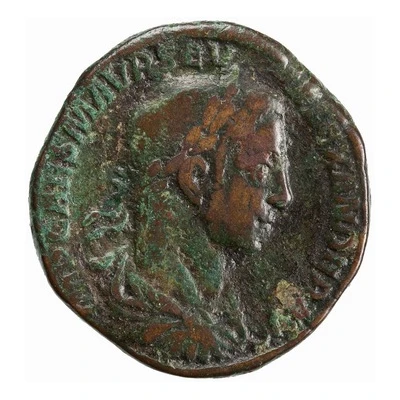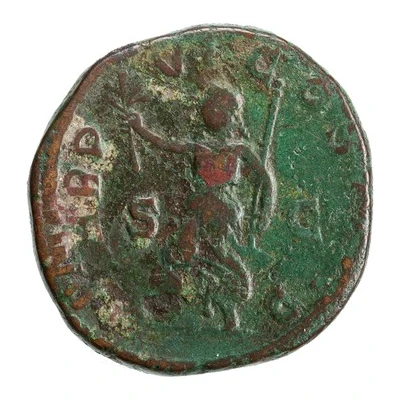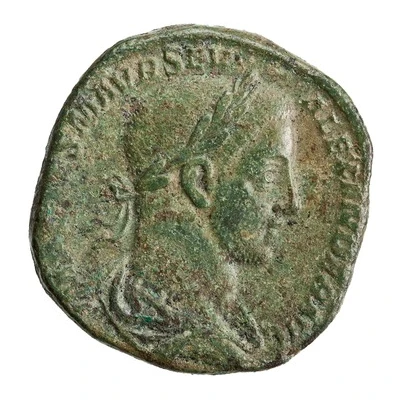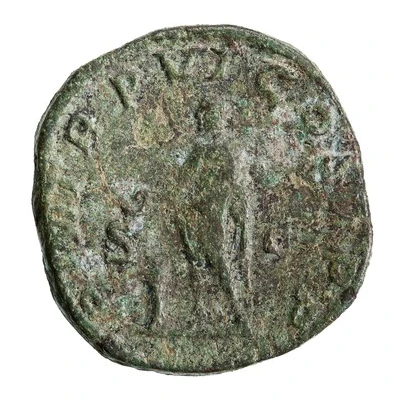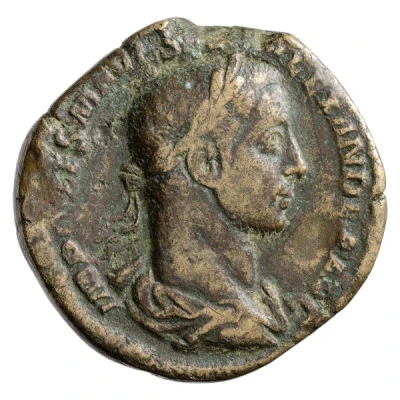
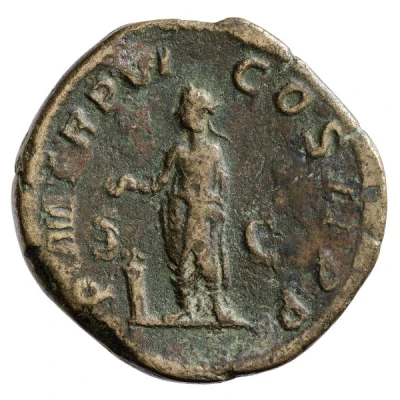

© Münzkabinett der Universität Göttingen (CC BY-NC 4.0 DE)
Sestertius - Severus Alexander P M TR P VI COS II P P S C
227 year| Bronze | 20.2 g | 31 mm |
| Issuer | Rome › Roman Empire (27 BC - 395 AD) |
|---|---|
| Emperor | Severus Alexander (Marcus Aurelius Severus Alexander) (222-235) |
| Type | Standard circulation coin |
| Year | 227 |
| Value | Sestertius (⅛) |
| Currency | Antoninianus, Reform of Caracalla (AD 215 – 301) |
| Composition | Bronze |
| Weight | 20.2 g |
| Diameter | 31 mm |
| Shape | Round (irregular) |
| Technique | Hammered |
| Demonetized | Yes |
| Updated | 2024-10-05 |
| Numista | N#279568 |
|---|---|
| Rarity index | 97% |
Reverse
Severus Alexander, veiled, togate, standing left, sacrificing out of patera in right hand at lighted altar, holding roll in left hand.
Script: Latin
Lettering: P M TR P VI COS II P P S C
Translation:
Pontifex Maximus, Tribunicia Potestate Sexta, Consul Secundum, Pater Patriae. Senatus Consultum.
High priest, holder of tribunician power for the sixth time, consul for the second time, father of the nation. Decree of the senate.
Comment
Example of this type:Münzkabinett der Universität Göttingen
Source:
Online Coins of the Roman Empire (OCRE)
Interesting fact
One interesting fact about this coin is that it features an image of Severus Alexander, who was a Roman emperor who ruled from 222 to 235 AD. He was known for his military campaigns and his efforts to restore the Roman Empire's power and stability after a period of turmoil. The coin's design, which includes an image of the emperor and various symbols and inscriptions, provides valuable insight into the iconography and propaganda strategies used by the Roman Empire during this time period. Additionally, the fact that the coin was made of bronze, a relatively inexpensive material, suggests that it was intended for widespread circulation and use in everyday transactions, providing a glimpse into the economic and monetary systems of the Roman Empire during this time.
